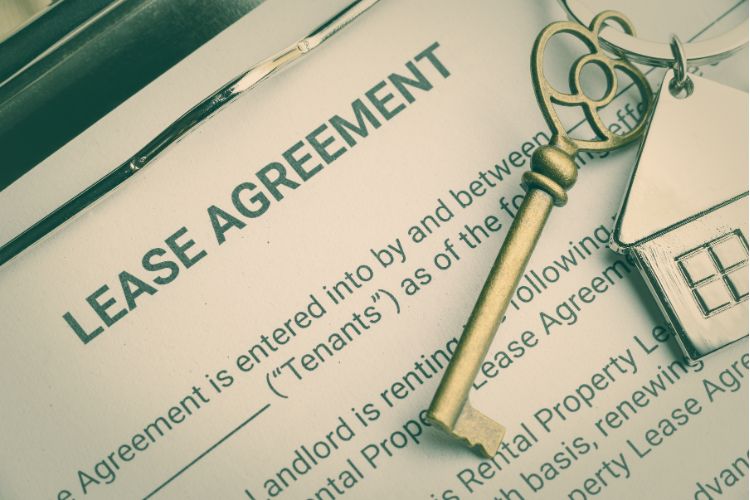
Rental properties are quite common across Queensland, with many tenants entering into lease agreements with landlords and property managers. These agreements set out the contractual rights and obligations of both parties when it comes to occupying the rental unit.
One common issue that arises is whether a landlord can lawfully deny a request by a tenant to add another occupant to the existing lease. This often occurs when a tenant wishes to add a new partner, family member, or friend as an approved resident of the property.
The tenant may ask the landlord or agent to amend the lease to include the additional occupant, but they could be denied for various reasons.
This post examines the laws and typical procedures around occupants and rental agreements under Queensland tenancy legislation.
TL;DR
Landlords in Queensland can refuse additional occupants on a lease based on reasonable grounds like financial, property, and legal factors. However, tenants have rights too and open negotiation can often achieve consent.
If no agreement is reached, the tenant may have to vacate, but occupancy disputes can usually be resolved constructively.
Legal Context Around Queensland Rental Agreements
In Queensland, the Residential Tenancies and Rooming Accommodation Act 2008 sets the framework for rental agreements and tenancy rights across the state.
The standard or common lease agreements used by most landlords and real estate agents will be based on the precedent templates and terms outlined in this legislation.
The act states that any person over 18 years old can enter a residential tenancy agreement with a landlord to occupy the property.
The lease will specify whether it is a fixed term (6 or 12 months) or a periodic rolling lease with no specified end date.
A key clause relates to the approved occupants residing in the rental property. The lease will define how many tenants are approved under the agreement, usually just a single tenant or a couple.
The tenant then requires the landlord’s permission to add any additional occupants not specified in the original lease.
The landlord has the right to approve or deny other residents as it is their property. However, they cannot unreasonably withhold consent for additional occupants without sufficient grounds.
Also Read: Commercial Lease Termination by Landlord
Reasons a Landlord May Deny Additional Occupants
When a tenant requests permission to add a new occupant to the lease, there are quite a few reasons why a landlord may legitimately deny this request.

Financial Factors
A major consideration for landlords is the financial security of any proposed new occupants.
They will want to check their income sources, rental histories, credit scores and overall ability to contribute to rent payments.
If doubts exist around someone’s ability to pay ongoing rent, a landlord may justifiably decline them as an approved resident.
Property Suitability
Landlords need to ensure the property remains suitable for the total number of occupants. If adding more residents would result in unreasonable noise, overcrowded rooms or insufficient parking, then a request could be denied.
Similarly, if the property is a 1-bedroom unit, adding 4 extra people may breach council occupancy limits.
Conduct and Compatibility
The behaviour and lifestyles of the proposed occupants also matter. A landlord can justifiably ask for references and tenant history checks for new occupants.
Issues like pet ownership, smoking, noise levels and tidiness standards could factor into a refusal decision.
Equally, making sure new occupants are compatible with existing tenants is important for harmonious tenancies.
Legal Reasons
A landlord may deny additional occupants when legal factors are not met. This includes situations where proposed occupants have insufficient visa status to remain in Australia long-term.
Discrimination laws mean landlords cannot refuse occupants based on protected attributes like race, disability etc without justified reasons.
Insurance and Liability Risks
Landlords also need to consider their building insurance, public liability, and obligations around safety when assessing extra occupants.
Factors like criminal histories or a lack of tenant referrals may present unreasonable risks that can lead to denying an extra occupant or even taking a name off a lease!

What Tenants Can Do If Request Is Denied
If a landlord denies a request to add occupants to the lease, the tenant has several options:
Open Negotiation
Tenants could consider opening a conversation with the landlord to understand their exact concerns. Providing background details on the proposed occupant may help alleviate worries over their suitability and dispel assumptions.
Tenants may also negotiate conditions like increased rent or specific behaviour agreements to have extra occupants approved.
Review Lease Terms
Checking the specific wording of the lease agreement is important.
In some cases, clauses may allow flexibility around the approval of additional occupants, guests, and short-term stays with notice to the landlord.
This can present options to add residents without amending occupancy terms.
Mediation Assistance
If negotiations between the tenant and landlord fail, then contacting a tenancy advice service could help mediate acceptable solutions.
They can assist with proposing compromise agreements while ensuring parties follow correct procedures.
Find New Rental
Ultimately, if no agreement is reached with the landlord, the tenant may need to give notice and find a new rental property that allows their desired number of occupants.
This can often present a fresh start if relationships deteriorate over occupancy disputes.
Avoid Lease Breaches
Importantly, if a landlord has denied consent for extra occupants, the tenant must avoid sub-letting or allowing unauthorised residents to move in, which would breach the lease terms.
Tenants need to follow due process to change occupancy terms or vacate the property.
Wrap-Up
Landlords in Queensland do have the legal right to approve or deny additional occupants to an existing lease agreement based on reasonable grounds.
Factors like property suitability, behaviour standards, insurance risks and protecting existing tenants can all contribute to refusal decisions. However, tenants also have rights around non-discrimination and transparency over occupancy limits.
With constructive communication and good faith negotiations, compromise agreements can usually be reached over additional occupants. If no suitable tenancy solution is found, relocating to more fitting premises may be required by the tenant.
By understanding the perspective of both parties, occupancy issues can often be resolved to mutually benefit landlords and tenants.








